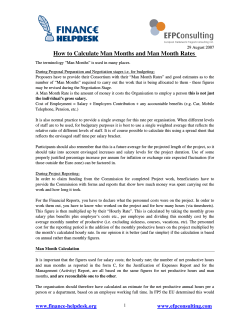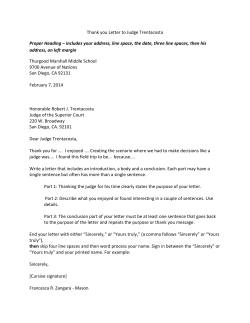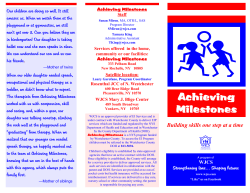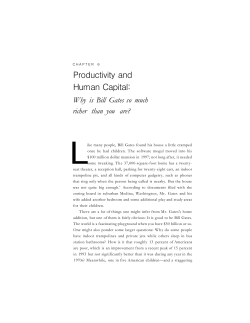
Document 188530
QA TECHNOLOGIES | WWW.QAT.COM | SALES@QAT.COM | 800-799-8545 / 402-391-9200 | FAX: 402-391-1175 | 222 S. 15TH ST., STE. 1404, OMAHA, NE 68102 Questions Answered. Solutions Provided. VISIT WWW.QAT.COM FOR MORE INFORMATION ON QAT SOLUTIONS! 6 Enterprise Integration and Architecture 6 Service Oriented Architecture 6 Application Development and Support 6 Vintage Restore 6 Staff Augmentation 6 QAT Exchange 6 QAT Flow 6 QAT Function Manager 6 QAT Publisher 6 QAT ReFactor 6 QAT Security 6 QAT WebDaptive 6 QAT Wizard How to Develop a Productive IT Team Having a productive IT team is essential to meeting project and departmental goals. Having solid team building processes is particularly important when teams consist of regular staff, consultants, and even offshore members. Team building is the process where a team studies how members work together and create an environment that encourages and values the contributions of its members. Effective teams' energies are focused on task effectiveness, maximizing the use of all members' resources to achieve the team's purpose, and problem solving. The members of truly effective teams recognize that it is not possible to fully separate a single individual's performance from that of the other members. When you have a truly effective IT team in place, they can accomplish tasks faster and with higher quality. Top 10 Characteristics of a Productive IT Team 1. Team member roles are clearly defined. 2. The team is clear about its goals and has performance targets that allow for growth but are still achievable. Subscribe to the QAT Insights e-newsletter to have articles like this one sent directly to your inbox every month. Visit qatinsights.com to subscribe! © 2007 QA Technologies, Inc. All Rights Reserved. 3. Each team member contributes skills, experiences, and information that support the team's purpose and, when possible, mentors the other members in their individual areas of expertise.. 4. There is a high level of interdependence among team members - each team member is committed to the project and understands teamwork is critical for achieving the desired outcome. 5. Team members respect each other and feel that the other members contribute positively to the team and projects. 6. Effective ways to communicate and resolve problems are in place and supported by all team members. 7. There is a feeling of trust and equal influence among team members allowing them to be direct and open in their communications with each other. 8. Team members are able to examine team and individual errors and weaknesses, without making personal attacks, enabling the group to learn from its experiences. 9. Both the team and individual members are prepared to take risks and are allowed to develop their abilities and skills. 10. Team management is viewed as a shared function - team members exercise leadership when their experiences and skills are appropriate to the needs of the team. A new productive IT team will develop more easily when all members work together on a task of mutual significant importance. This shared task will allow each member to provide their technical knowledge and skills in helping to resolve the problem, develop new skills, and complete the project. While working on the project, team members will have the opportunity to learn to manage team conflict, to evaluate the performance of the team, and the best ways to provide feedback and support that will encourage members to perform optimally. As a result of this learning process, the team members will build commitment to the team, develop trust in each other, and learn to support for one another which is critical in achieving and sustaining a high level of performance. For more information, please visit http://www.qat.com/staffing.asp.
© Copyright 2025










